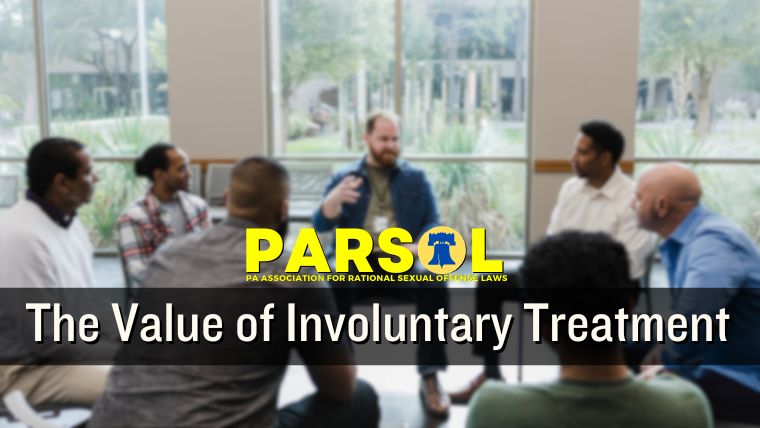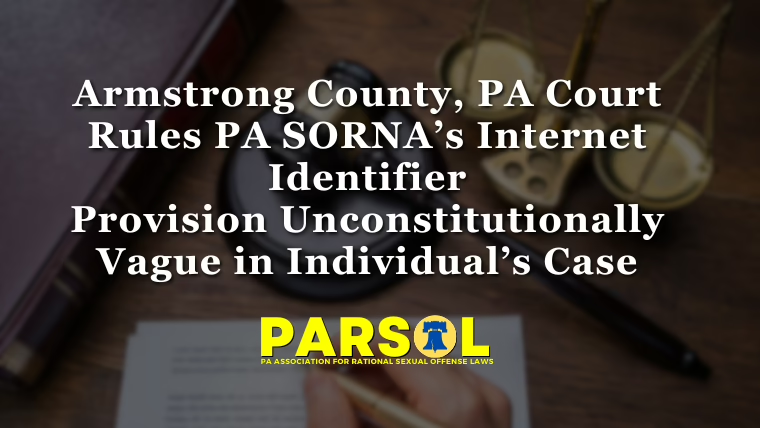The management of those convicted of sex-based crimes after release has been largely effectuated through the enforcement of civil (rather than criminal) laws. The use of civil regulations as management tools has the distinct benefit of permitting criminal justice officials to restrict the freedom and privacy of sex offenders without abiding by the stricter procedural requirements that would be constitutionally required in the criminal law arena. The civil law-based tools also permit state officials to monitor and supervise sex offenders beyond traditional parole and probation structures.
From the moment the sentence is handed down, a person convicted of a crime of a sexual nature (CSN) is ordered into treatment. Programs are in place in prisons and jails. Participation is said to be voluntary, but refusal to participate means serving the maximum sentence. Once released on probation or parole, continued participation becomes a condition of freedom. And for those designated as sexually violent predators (SVPs), this commitment ends at death. Is there a value returned for this heavy investment?
The general goals of treatment for mental health concerns are:
- symptom relief
- improving the quality of life
- better daily functioning
- developing new coping skills
- preventing more severe issues
- promoting recovery
- improving insight and understanding
- supporting social connections
- emotional regulation
- behavioral change
For those forced to attend periodic sessions with providers of state-mandated programs, the last one is all they see. Speaking with many persons who must participate in this so-called treatment, either as a condition of state parole or because they have been designated SVPs, none of the other nine items on that list are on the agenda.
One condition of state parole is attendance at regular sessions with a provider that is approved by the Pennsylvania Board of Probation & Parole(PBPP). These tend to be weekly groups plus frequent individual sessions lasting years if not decades. The specific providers will come and go, as will members of the groups; continuity isn’t emphasized because commitment to the process isn’t required, just attendance.
Each person is required to sign a pages-long contract that becomes an extension of the conditions of their parole that were imposed by the PBPP. Pages of restrictions now define the new boundaries under this involuntary outpatient commitment. To assist the parole agent, where you live and work and travel, who you can live with or visit, what you can do with your free time – all are now subject to forced self-disclosure, either in a session or under polygraph examination.
The hour-long group sessions do not meet the goals listed above. A few minutes are spent getting started. Each attendee is given a few minutes to discuss what’s new since last time, and we’re halfway through the hour. Saving five minutes for the wrap-up, the group has perhaps twenty-five minutes to focus on a topic or address one member’s concerns.
These programs are sold as “treatment,” but the crucial prerequisite for effective treatment is a desire to change. Unless the client feels that the treatment is improving his life, he has no internal desire to continue. Without that, much of what happens is just role-playing on the parts of all involved. So who benefits from treatment at gunpoint?
The answer is the state, in the form of indirect supervision. The attendees have checked-in with the provider, so they haven’t absconded. They may have self-disclosed a problematic moment in the past seven days. They might display emotional behaviors, like frustration or apathy. They might report losing their job or even their home. All of these will be promptly relayed to the parole agent. As a form of supervision, it’s a windfall for the state. Not only does it lighten the workload of the parole agent, but it allows for methods which would otherwise be subject to legal challenge.
For those designated as SVPs, there comes a moment when the reach of the parole agent ends and the state needs a new way to monitor the individual. Enter Pennsylvania’s unique program of Involuntary Outpatient Civil Commitment. Unlike nineteen states and the federal government, Pennsylvania has not enacted a path to civilly commit an adult to an institution after release from prison. Instead, persons who were once declared to be SVPs – an as-yet irreversible finding – are committed to outpatient monitoring by providers for the rest of their lives. Instead of being supervised by the PBPP, they are now under the oversight of the SOAB.
Speaking with SVPs who completed their sentences more than a decade ago, the primary concern seems to be paying for the program, which amounts to thousands of dollars per year. While SORNA mandates “at least monthly” sessions, most of the providers demand at least twice that number plus annual or semi-annual polygraph tests – all with no end in sight. They find no personal benefit to attending these sessions, only burdens.
Which symptoms are being relieved? How has quality of life or daily functioning been improved? Aside from how to cope with this intrusion into your life, what new skills have you developed? What recovery has been experienced? How have social connections been strengthened? As for emotional regulation, the iatrogenic anger, frustration and apathy would be better avoided than controlled.
Artificial intelligence will echo the narrow legal distinction the courts have used to defend these policies. But it’s a distinction without a difference, and policy isn’t practice, treatment, or supervision. The only beneficiary is the state.




![stuckIn1995_rally_header - PARSOL - Pennsylvania Assoc for Rational Sex Offense Laws (PA Megan's Law Resources) PARSOL Board Chair Josiah Krammes speaks at the PA Capitol Rotunda flanked by State Reps. Emily Kinkead and Tim Briggs (28 Oct 2025) [John Dawe/PARSOL]](https://parsol.org/wp-content/uploads/2025/10/stuckIn1995_rally_header.avif)